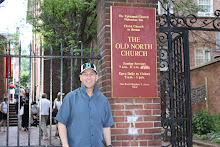Recent experiences make
me think.
As a Christian (please
don’t ignore this context and presupposition for my comments), there are two
things that seem to me most crucial to keep in mind: 1) because we believe the God we believe in
is real, everything hinges on His existence.
If the God of traditional Christianity is a mythical concept used to
explain some element of our experience, and not real, then Christianity is
simply not true in the sense of fitting with that which is really the case. If the Christian God is not the sole Creator;
if He did not choose a people for Himself; if He did not reveal Himself to
Israel; if He did not speak through the prophets; if He did not become
incarnate in Christ, so that God Himself became a human being; if He did not
send His Spirit to be with those who believe in Jesus as Messiah; if God does
not consider those who comprise the church to be His special children; if God
does not care whether human beings acknowledge Him as Lord or not; if God did not inspire in some way the
writings we have in the Bible, then we need to openly acknowledge that
Christianity is a human invention and not true or representative of truth. If we do not continue to hold these things as
truth, we can call ourselves many things, but we cannot accurately call
ourselves Christians in the sense of traditional, historic Christianity,
because we have decided that we no longer believe the things that make Christianity
what it is. 2) I know of no other way for us to know what we know about God
apart from what He has revealed about Himself in historical deeds (often in the
ancient past in dealing with Israel, but also in the Christian era), by being
with and leading human beings spiritually, by speaking to human beings, by
becoming incarnate specifically in the person of Jesus Christ, by indwelling
Christians with His Holy Spirit, and by revealing much about Himself and His
will for humankind in the teachings of His followers, especially as these are
recorded in the pages of the Bible.
I know this is not all
that needs to be said about truth, but, if we stand apart from these two basic
ideas my impression is that we land in a
place where ultimately nothing can really be known about the Christian God. Apart from these two basic ideas, whatever we
come up with are at best educated guesses, or theories, or reflections of
ourselves in the mirror with no inherent authority regarding what is real. They are not far from being just speculative
opinions or hopeful wishes, with any claim to being authoritative truth being
just as valid as any other, meaning that ultimately none are
authoritative. Certainly, if the above
two basic principles are not really true, then the twelve non-negotiables that
comprise our What We Believe Statement are meaningless, being grounded
ultimately in our whims.

No comments:
Post a Comment